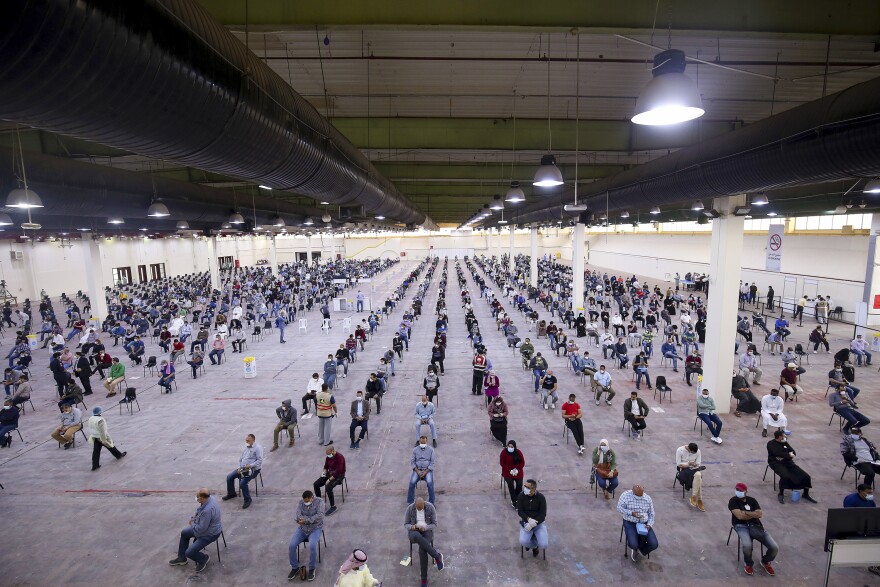Three years ago, on March 11, 2020, COVID-19 was officially designated a pandemic by the World Health Organization. The novel coronavirus had fanned out across the globe, and the world had lost its ability to contain it. Countries reacted to the emerging disease with a mix of denial, incredulity and fear. Here's what global health officials and political leaders were saying in the weeks leading up to that WHO declaration.
Jan. 5, 2020: WHO issued an announcement that not quite a week prior, their China Country Office had learned of "cases of pneumonia of unknown etiology (unknown cause) detected in Wuhan City, Hubei Province of China. As of 3 January 2020, a total of 44 patients with pneumonia of unknown etiology have been reported to WHO by the national authorities in China."
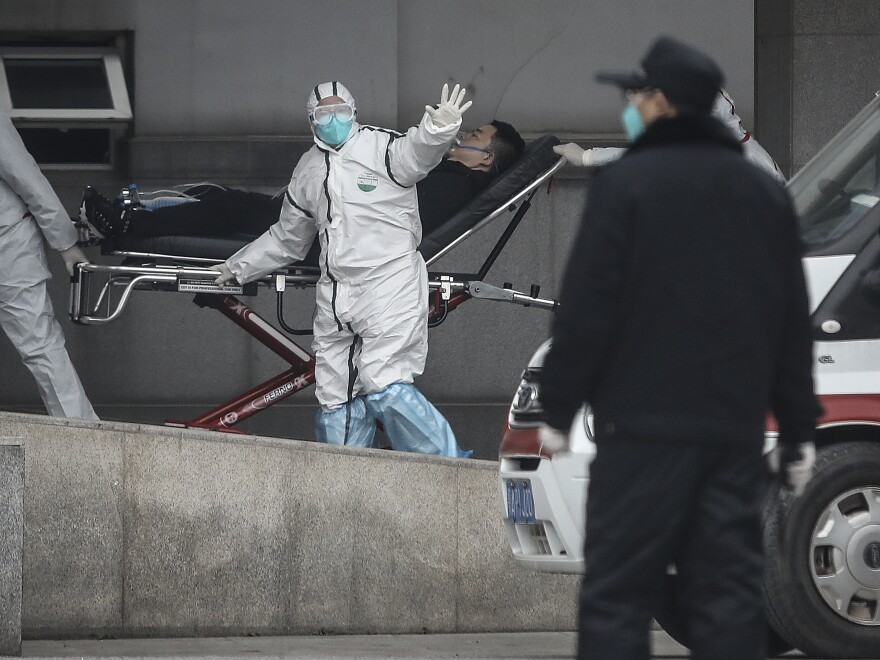
January 9, 2020: WHO continued to share what they knew of events in China. "Chinese authorities have made a preliminary determination of a novel (or new) coronavirus, identified in a hospitalized person with pneumonia in Wuhan ... WHO continues to monitor the situation closely."

Jan. 14, 2020: In the early days, public health officials had little idea that this novel coronavirus would spread across the globe. Maria Van Kerkhove, the acting head of WHO's emerging diseases unit, told Reuters, "From the information that we have, it is possible that there is limited human-to-human transmission, potentially among families, but it is very clear right now that we have no sustained human-to-human transmission."
January 22, 2020: When CNBC asked President Donald Trump about any concern of an impending pandemic, he didn't hesitate: "No. Not at all ... We have it totally under control. It's one person coming in from China, and we have it under control. It's going to be just fine."
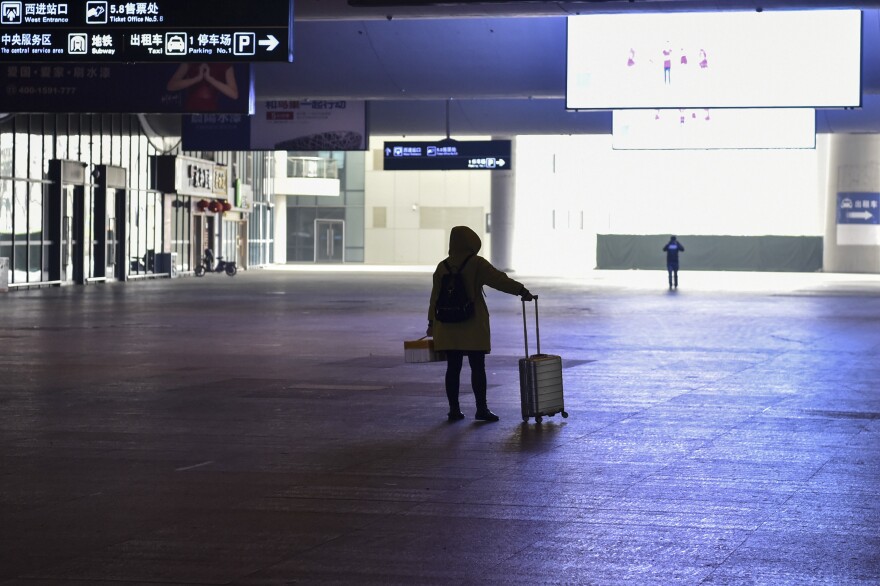
Jan. 23, 2020: Tedros Adhanom Ghebreyesus, WHO director-general, said in a statement that the coronavirus outbreak was not yet a public health emergency of international concern. He added, "Make no mistake. This is an emergency in China, but it has not yet become a global health emergency. It may yet become one."
Meanwhile, Wuhan was shutting down. The Chinese newspaper People's Daily tweeted: "No people in #Wuhan... will be allowed to leave the city starting 10 a.m. of Jan. 23. Train stations and airport will shut down; the city bus, subway, ferry and long-distance shuttle bus will also be temporarily closed."

Jan. 29, 2020: Warnings from global health officials were becoming increasingly dire. In Geneva, Dr. Mike Ryan, head of WHO's Health Emergencies Programme, said, "The whole world needs to be on alert now. The whole world needs to take action and be ready for any cases that come from the epicenter or other epicenter that becomes established."

Jan. 30, 2020: "Over the past few weeks, we have witnessed the emergence of a previously unknown pathogen, which has escalated into an unprecedented outbreak," Tedros said. He went on to declare "a public health emergency of international concern over the global outbreak of novel coronavirus. The main reason for this declaration is not because of what is happening in China, but because of what is happening in other countries."
On the same day, Dr. Robert Redfield, director of the Centers for Disease Control and Prevention, remarked, "Given what we've seen in China and other countries with the novel coronavirus, CDC experts have expected some person-to-person spread in the U.S. We understand that this may be concerning, but based on what we know now, we still believe the immediate risk to the American public is low."
Feb. 3, 2020: Claiming early action around the novel coronavirus, Chinese President Xi Jinping, said, "I explicitly demanded Hubei province [where Wuhan is located] implement comprehensive and strict controls on the outflow of personnel on January 22."
Also on that day, U.K. Prime Minister Boris Johnson gave a speech in Greenwich, England. Partway through, he commented, "when there is a risk that new diseases such as coronavirus will trigger a panic and a desire for market segregation that go beyond what is medically rational to the point of doing real and unnecessary economic damage, then at that moment humanity needs ... some country ready to take off its Clark Kent spectacles and leap into the phone booth and emerge with its cloak flowing as the supercharged champion, of the right of the populations of the earth to buy and sell freely among each other."
Meanwhile, Dr. Anthony Fauci, director of the U.S.'s National Institute of Allergy and Infectious Diseases, was alarmed. He told CNBC: "It's escalating. The number of cases that increase from one day to another is clearly going up in a very steep slope."
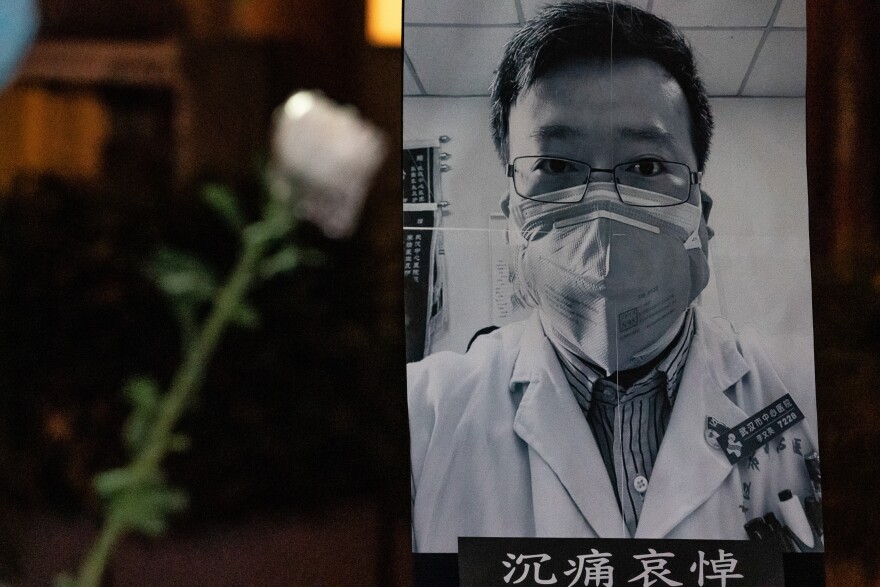
Feb. 7, 2020: Dr. Li Wenliang, an ophthalmologist in Wuhan, died after contracting the novel coronavirus nearly a month earlier. He had gained attention by first sounding the alarm over the new virus and then being reprimanded by Chinese authorities. Li was forced to sign a statement saying he'd propagated a rumor, but in an interview with The New York Times a week before his death, he said, "I felt I was being wronged, but I had to accept it. Obviously I had been acting out of good will. I felt very sad seeing so many people losing their loved ones." He added, "If the officials had disclosed information about the epidemic earlier, I think it would have been a lot better. There should be more openness and transparency." Li was survived by his son and his wife, who was pregnant with their second child at the time.
Feb. 11, 2020: At a WHO briefing, Tedros officially christened the novel coronavirus. "We now have a name for the disease," he said. "COVID-19. I'll spell it: C-O-V-I-D hyphen one nine – COVID-19." The "19" refers to the year when the virus first surfaced — 2019. "Having a name matters to prevent the use of other names that can be inaccurate or stigmatizing," Tedros continued, alluding to the use of nomenclature such as "Wuhan virus" and "China virus." He added, "It also gives us a standard format to use for any future coronavirus outbreaks."
He used the same briefing to press world leaders to focus on containing the virus. "To be honest," he said, "a virus is more powerful in creating political, economic and social upheaval than any terrorist attack ... A virus can have more powerful consequences than any terrorist action .... If the world doesn't want to wake up and consider this enemy virus as public enemy number one, I don't think we will learn our lessons."
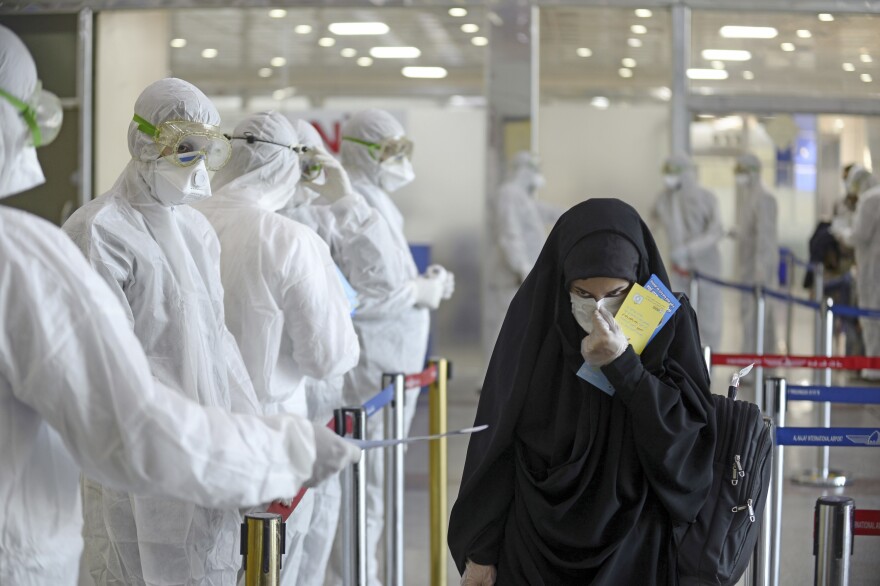
Feb. 22, 2020: "The increasing signs of transmission outside China show that the window of opportunity we have for containing this virus is narrowing," Tedros warned.
Feb. 23, 2020: In a speech, President Xi admitted, "This is both a crisis and a big test for us."
Feb. 25, 2020: CDC's Dr. Nancy Messonnier, the incident manager for the COVID-19 response, described in a telebriefing the likely possibility of canceling large gatherings and closing schools and workplaces. "I understand this whole situation may seem overwhelming," she acknowledged, "and that disruption to everyday life may be severe."
Feb. 28, 2020: On this day, WHO raised the global risk of the coronavirus from "high" to "very high." In New Zealand, the Ministry of Health stated that, "The first case of COVID-19 is now confirmed in New Zealand in a person in their 60s recently returned from Iran." New Zealand, under the leadership of Prime Minister Jacinda Ardern, would go on to have one of the most effective early responses to the coronavirus, keeping the illness at bay by closing its borders and shuttering swaths of its economy.

March 3, 2020: Prime Minister Johnson said, "I was at a hospital the other night where I think ... there were actually coronavirus patients and I shook hands with everybody, you'll be pleased to know, and I continue to shake hands." Just over a month later, Johnson would return to the hospital and require "liters and liters of oxygen" — 10 days after testing positive for COVID-19.

March 9, 2020: "In my understanding," said Brazilian President Jair Bolsonaro, "the destructive power of this virus is overestimated. Maybe it's even being promoted for economic reasons." At this point, Brazil had only registered 25 cases of COVID-19 and no deaths. Today, Brazil has had nearly 700,000 deaths due to the virus.
An early and widening outbreak in Italy led Prime Minister Giuseppe Conte to lock down the country's north. It was an unpopular move. Conte remarked to La Repubblica newspaper that this was Italy's "darkest hour." He added, "It is not easy to change life habits from one day to the next and accept personal sacrifices in view of a collective good. [But] if we all respect the rules, the country will soon be able to raise its head again."
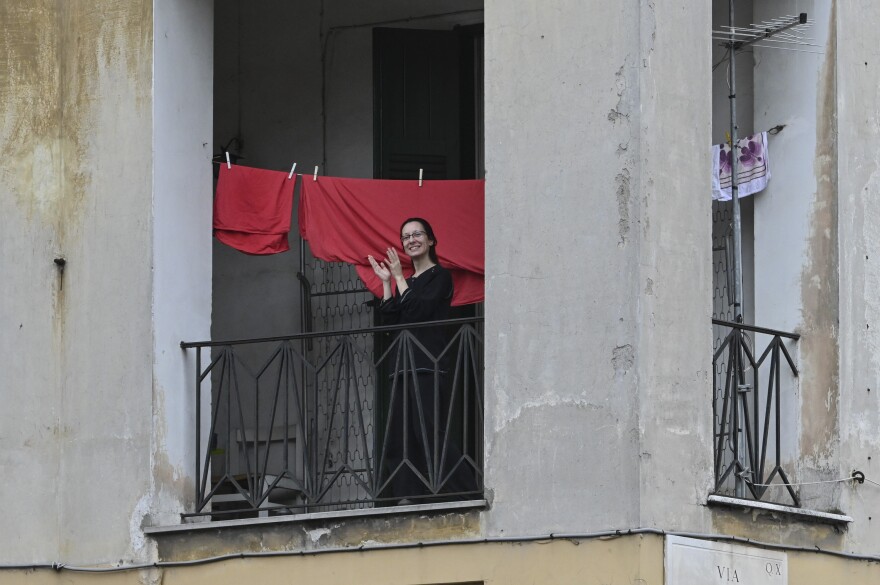
March 10, 2020: Despite outbreaks in Brazil, Italy and over 100 other countries — and clear evidence that the coronavirus was spreading within Washington state, after a meeting with Republican senators, President Trump announced, "It will go away. Just stay calm. It will go away."
March 11, 2020: In January, WHO had called COVID-19 a virus of concern. Now, in an announcement, Tedros upgraded it: WHO has been assessing this outbreak around the clock, and we are deeply concerned by alarming levels of severity and inaction. We have made the assessment that COVID-19 can be characterized as a pandemic."
COVID-19 went on to be responsible for the first pandemic ever caused by a coronavirus. More than three years in, there have been 759 million cases and almost 7 million deaths worldwide.
Copyright 2023 NPR. To see more, visit https://www.npr.org.
